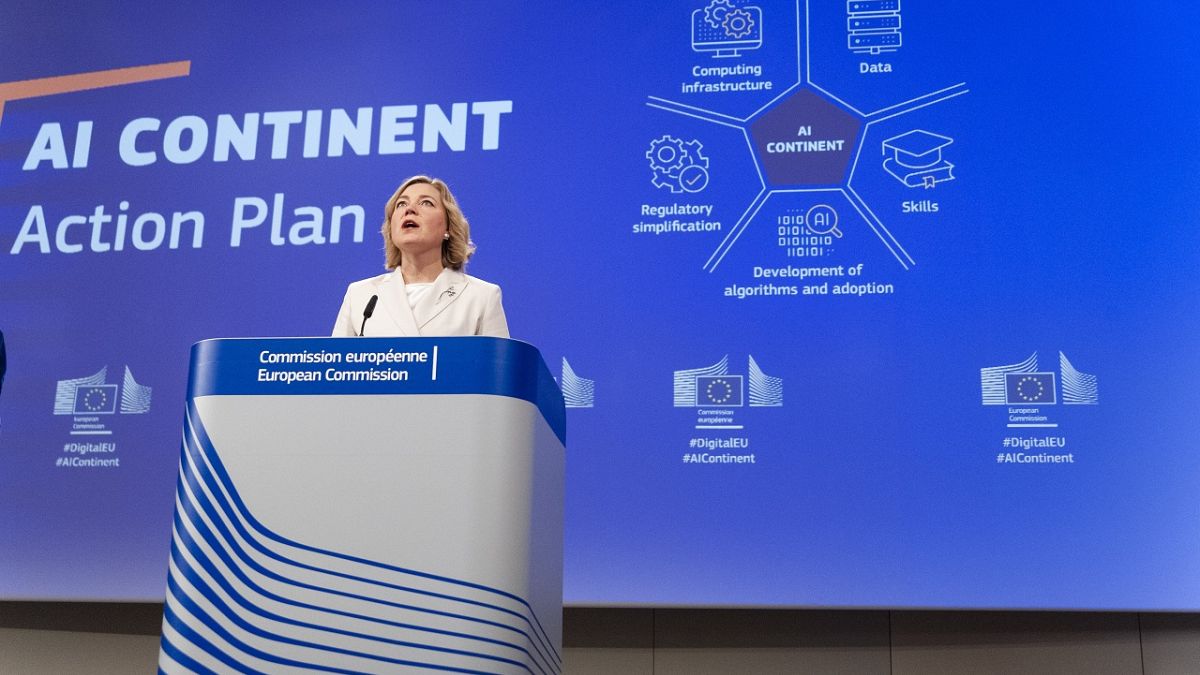

In the ever-evolving landscape of artificial intelligence (AI), several key developments are shaping the future of how technology interacts with society, governance, and privacy. As AI continues to gain momentum, various stakeholders are making strides to ensure its responsible integration and address any challenges that arise along the way. In this context, recent interactions between regulatory bodies, companies, and industries provide insight into the evolving narrative of AI technology.
The European Union is taking a proactive approach to integrate AI responsibly and ethically through initiatives led by its Commission. Recently, the Commission’s AI Office orchestrated a workshop aimed at encouraging companies to sign a final code of practice. This workshop is part of a broader effort to establish a framework that outlines the ethical and practical applications of AI. By engaging with businesses, the EU hopes to highlight the benefits of adhering to this code, thereby fostering a collaborative environment focused on the sustainable development of AI technologies.
Such efforts underscore the importance of creating a structured, unified approach to AI implementation. The code of practice, once adopted by companies, is expected to guide technological advancements in a manner that aligns with shared ethical standards. The workshop’s agenda included a detailed discussion on the implications of signing the code, emphasizing how it contributes to transparency and accountability. By participating in these dialogues, companies are not only aligning with regulatory mandates but are also committing to a future where AI development is both innovative and mindful.
In tandem with regulatory measures, AI’s role in entertainment is expanding, promising enhanced engagement and personalization. At a recent Euronews discussion, Samira Panah Bakhtiar, General Manager of Media & Entertainment at Amazon Web Services, shared perspectives on how AI is revolutionizing the sports industry. AI technology is ushering in an era where entertainment is increasingly interactive and personalized. The future, Bakhtiar suggests, lies in multi-dimensional experiences that captivate and involve audiences more than ever.
With AI, audiences can look forward to unprecedented customization in how they experience sports and entertainment. For instance, AI-powered analytics are transforming how games are watched, allowing fans to explore match details and player stats in real-time. By creating a more immersive experience, AI ensures that sports enthusiasts are connected to every heartbeat of the game, making each moment memorable and uniquely tailored.
While the potential of AI is vast and continually expanding, concerns about data privacy and protection remain paramount. In Germany, a government official has raised alarms regarding DeepSeek, an AI company involved in the transfer of user data to China. This call comes amid growing apprehension over how data privacy is managed in an increasingly interconnected world. The official’s request for Apple and Google to ban DeepSeek underscores the critical nature of safeguarding personal information in the age of AI.
Privacy concerns such as these highlight the delicate balance between technological progression and individual rights. The situation with DeepSeek serves as a reminder of the ongoing need for vigilance and transparency in the ever-complex digital ecosystem. Ensuring that user data is handled appropriately and lawfully is essential, and it acts as a fundamental principle in maintaining trust between users and technology providers.
In summary, the AI landscape is characterized by substantial advancements and complex challenges. Initiatives like the EU’s code of practice workshop aim to establish a foundation for ethical AI development. Meanwhile, technological innovations, like those transforming the sports experience, are expanding the horizons of entertainment. As AI continues to evolve, addressing concerns such as data privacy is crucial in safeguarding users’ trust while paving the way for a harmonized integration of AI into daily life.
In synthesizing these developments, it is clear that collaboration, innovation, and privacy are essential themes guiding the ongoing narrative of AI. By navigating these elements with mindfulness, society can aspire to harness the potential of AI while adhering to ethical and responsible standards that benefit all stakeholders involved.
Source: {link}
